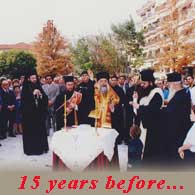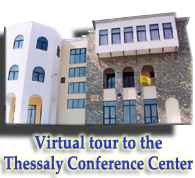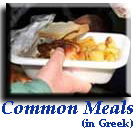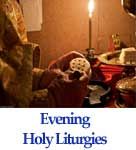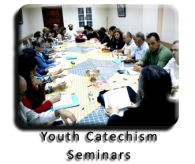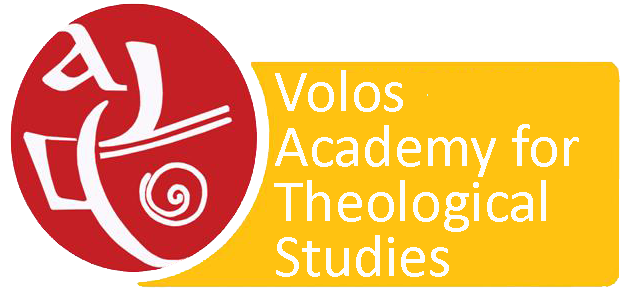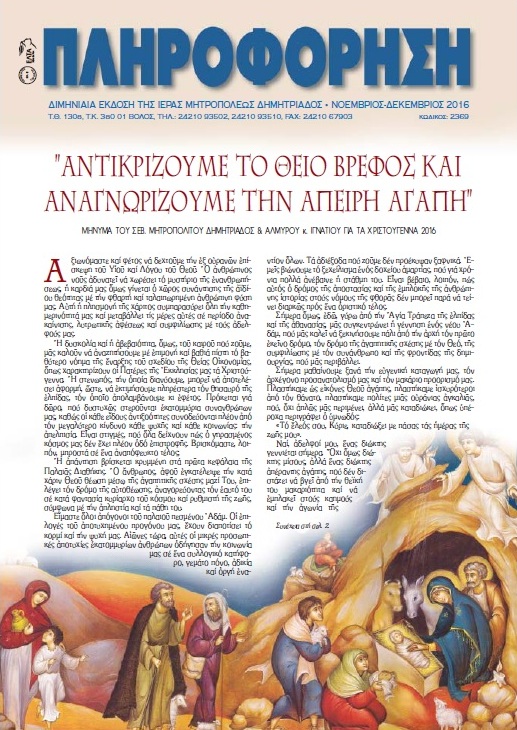The Present and Future of Biblical Studies in the Orthodox and Roman Catholic Churches
The Volos Academy for Theological Studies, in collaboration with the Catholic Theological Faculty of Central Italy organized on June 6-7, in Florence, an international conference on the subject: "The Present and Future of Biblical Studies in the Orthodox and Roman Catholic Churches". The conference was hosted by the Catholic Theological Faculty of Central Italy, and was attended by the Cardinal Giuseppe Betori, Archbishop Metropolitan of Florence, Magnus Chancellor of the Faculty of Theology, Mgr. Riccardo Fontana, Archbishop of Arezzo, Mgr. Andrea Palmieri, Sub-secretary of the Pontifical Council for the Promotion of Christian Unity (Rome), Rev. Nikolaos Papadopoulos, Rector of the Greek Orthodox Parish of St. James the Brother of our Lord in Florence, as well as by many professors, biblical scholars, priests, and lay people from both Roman Catholic and Orthodox Churches.
At the beginning of the conference, brief introductory greetings were addressed by His Eminence Giuseppe Cardinal Betori, (Roman Catholic Archbishop of Florence), Professor Stefano Tarocchi, (Dean of the Theological Faculty in Florence), and Dr. Pantelis Kalaitzidis, (Director of the Volos Academy for Theological Studies), while the Rev. Dr. Christos Chachamidis, (priest of the Holy Metropolis of Demetrias, and member of the Board of Directors of the Volos Academy) read the greetings to the conference on behalf of His Eminence, Metropolitan Ignatius of Demetrias. (Click here)
During the first session, Prof. Stefano Tarocchi (Faculty of Theology, Florence), presented a paper on "The Canon of the New Testament in Roman Catholic Tradition". According to the author, the opening canon of the 'Plenary Council of Africa in Hippo' declares: [it is established that] «apart from the canonical Scriptures, nothing can be read in the Church under the name of Divine Scriptures». The debate that had lasted for ages was in a way concealed. Augustine, too, just before providing us with our still valid list of books of the New Testament, wrote: "Now, in regard to the canonical Scriptures, he must follow the judgment of the greater number of Catholic churches; and among these, of course, a high place must be given to such as have been thought worthy to be the seat of an apostle and to receive epistles". That is how the list of 27 writings became relatively constant in the Latin tradition, notwithstanding some oscillations, i.e., in the corpus of Pauline epistles. Dr. Aikaterini Tsalampouni (Lecturer, School of Theology, Aristotle University of Thessaloniki), spoke on "The Canon of the New Testament in Orthodox Tradition". According to the author, although the New Testament Canon is more or less well established, some points remain open to academic debate. Moreover, it seems that its perception in Western and Eastern Christianity is different. This difference, as well as the ambiguity of the canon's limits in the Orthodox Church, were highlighted in a discussion of the theological norms of canonicity according to the patristic sources as well as of the relation of the Canon to the Church according to Orthodox theology. The author claimed that (a) the formation of the canon was a complex process dictated not only by external but also by internal factors and retains an ambiguity and fluidity in the Eastern Churches, (b) there is mutual dependence between the rule of faith and the canon, and (c) this particular form of relation gave space to diversity but also guaranteed the unity of the canon, while at the same time keeping its limits fluid, allowing some kind of openness. Prof. Christos Karakolis (School of Theology, University of Athens), presented a paper on the "Patristic Tradition, Orthodox Theology, and the Importance of the Bible in the Orthodox Church", In the first part of the paper, he analyzed the evolution of the patristic interpretive tradition up to the Ottoman period and raised issues of originality of biblical interpretation, of the scholarly study of the Bible, and of the authority of classical patristic interpretations. In the second part, he presented an outline of the relationship between the Orthodox Theology of the 20th century to the Bible and biblical studies. In this context reference was made to the Christian fraternities of theologians, to the "theology in the 60s", to the marginalization of biblical studies, and the identification of Orthodoxy with patristic theology. In the third part, he listed the area of Orthodox Church life in which the importance of the Bible has been reduced. The paper concluded with specific recommendations for the restoration of the Bible to the center of the Church's life. Prof. Roberto Filippini (Theological Studium, Camaiore), presented a paper on "Holy Scripture and Tradition in Roman Catholicism". The painstaking, in-depth study of the meaning of the transmission of divine revelation must be recognized as one of the most positive and fruitful results of Vatican II. Thanks to the paradigm of revelation as the self-communication of the God-Trinity with its dialogic-personalistic, historical-Christocentric characteristics and salvific-communion objective, in relation to man's yearning capax Dei (DV 1-6) and thanks to the dynamic and vital concept of tradition, understood as the very life of the Church (DV 7-10), Dei Verbum goes beyond the age-old issue of the two material sources of Revelation and proposes a vision in which sacred tradition and Sacred Scripture "are closely linked and inter-communicative"(DV 9) Revelation, even if completed, continues to be the ever-contemporary and current Word entrusted to the Church, in tradition and Scripture, precisely in their interdependence. These in fact are presented in their original form as single elements with their many connections, as "a single sacred deposit" (DV10), which is not inert because through them the Word of God is communicated, in the Church, to all men of all times and in all places, increasing its understanding through the assistance of the Holy Spirit (DV 8).
In the evening session, Prof. Miltiadis Konstantinou (School of Theology, Aristotle University of Thessaloniki), presented a paper on "The Divine Inspiration of the Bible in the Orthodox Church". According to the author, although both the writings of the Church Fathers and the decisions of the ecumenical and local Synods describe the Bible as "divine", one cannot find a theoretical approach to the meaning of the term, nor the development of a systematic teaching on the coordination of the divine and human factors in the Bible. The question of "God's Word" in Greek Orthodox literature arises at the end of 18th century, probably under the influence of scholastic theological speculations that were developed by western theologians. From St. Nicodemus of Mount Athos to the theologians of the 20th century, theological thought was based on the distinction between texts written "by inspiration" and those written "under supervision" of God. Nowadays, biblical scholarship and systematic theological approach agree that the inspiration of the Bible is understandable only within the framework of community. The testimony of the Scripture does not refer to an objectively reliable source, but to the living tradition of the people of God, and could not have any authority outside the place of Church. Dr Alessandro Biancalani (Faculty of Theology, Florence), spoke on "The Roman Catholic Doctrine on Biblical Inspiration". In his paper, the author developed the theme of inspiration in the Roman Catholic church, starting from a basic principle: inspiration acknowledges divine intervention at all levels so that the book can be said to be inspired. The author is fully involved as a hagiographer, but also God can be said to be the "true author". To clarify these three levels of divine inspiration, the paper was divided into two parts or approaches: diachronic and synchronic. On the one hand, it is necessary to retrace the Magisterium's steps to clarify these three levels, on the other it is also essential, always from the point of view of the magisterial interventions, to further develop the subjects of the inspired book and of its author, the hagiographer. Towards the end of the paper the author discussed the theme of "Deus auctor" as described by Benedict XVI's Verbum Domini, which deals with the interpretation of the texts from the point of view of the hermeneutics of faith. Prof. Gérard Rossé (Sophia University Institute, Loppiano), presented a paper on the "Hermeneutical Methods of Biblical Exegesis in Roman Catholicism". Gérard Rossé's paper aimed to present the evolution of the approach to the Bible, beginning with the Fathers of the Church, through the Middle Ages, and up to today. Special attention was placed on the paradigm shift that occured after the Enlightenment period as reason took precedence over faith, and the historical-critical method emerged, followed by other methods of study of the text. The author also insisted upon their importance for believers, with particular reference to the Dei Verbum of the Second Vatican Council and to the Document of the Pontifical Biblical Commission, The Interpretation of the Bible in the Church (1993).
In the first session of the second day, Prof. John Fotopoulos (St Mary's College, Notre Dame, USA), spoke on "The Present and Future of Biblical Studies in the Orthodox Church". In his paper he mentioned the importance of the papal encyclical, Divino Afflante Spiritu (1943), and Vatican II's Dei Verbum (1965) for contemporary Roman Catholic biblical studies. To be sure, the Vatican's emphasis on literary forms significantly impacted Roman Catholic biblical scholarship in a most positive way. The author noted, however, that in the Orthodox Church we have had nothing analogous to these Roman Catholic documents. We have had no patriarchal encyclicals similar to them, nor do we have a worldwide Orthodox biblical commission under the jurisdiction of the Ecumenical Patriarchate of Constantinople. Yet, despite this reality, there are numerous Orthodox Christian scholars using historical-criticism fruitfully for their study of the Scriptures, as well as many of the so-called "new methods" of biblical scholarship. The author mentioned that many contemporary Orthodox biblical scholars have received their Ph.D. from major universities, having been trained by some of the leading biblical scholars in the world. Indeed, Orthodox biblical scholars now have tenured positions in many notable non-Orthodox colleges and universities in the United States and Europe. Many other excellent Orthodox biblical scholars occupy professorships at state universities in Greece, Lebanon, Romania, Serbia, and Russia. Despite these gains, the author emphasized, there still seems to be a general disregard among the Orthodox for historical-critical study of the Scriptures, if not downright hostility to it, particularly on the part of many clergy and monastics who prefer to repeat the exegesis of a small number of fathers for what they deem to be 'the' Orthodox interpretation of a given biblical text. However, such a practice ignores the spirit of the fathers who unceasingly studied the Scriptures, made use of the scholarly methods of their time, and offered a wide variety of biblical interpretations. The author concluded by noting that although we Orthodox have made some significant strides in biblical studies during the past 100 years, we still have a long way to go. The study of the Scriptures needs more emphasis from the hierarchy in consultation with Orthodox biblical scholars and a well-reasoned way forward needs to be considered. Concerted efforts for Orthodox biblical studies, led by the Holy Spirit, are certainly required.
Prof. Konstantinos Zarras (School of Theology, University of Athens) presented a paper under the title "Jews, Jewish Studies and Judeophobia in Modern Greece". According to the author, since ancient times, Jews are a constant and valuable presence in Greece, both religiously and culturally. With Salonika as one of their main centres that beamed for ages, they have thrived and contributed to the formation of all eastern Mediterranean cultural identity. Yet, although they have travelled a long way together with their Christian brothers, as true children of Abraham, anti-Judaic feelings and attitudes are oft to be observed, even among the more learned. In a fast changing world, education and the advancement of Judaic studies will help remedy deeply-rooted misconceptions and lead to a better understanding between both communities. Luca Mazzinghi (Faculty of Theology, Florence, and Pontifical Biblical Institute, Rome), discussed "The Place of Biblical Studies in the Catholic Church after the Dogmatic Constitution Dei Verbum of the Second Vatican Council". In the paper, the author highlighted some important aspects related to Catholic exegesis as it practiced today, in the light of the Vatican Council II. First, the paper dealt with the central role played by the Scriptures, inside the Catholic Church, in the light of the whole Vatican Council II. Second, it studied the concept of "revelation" in DV 2, as "dialogic" and "historic" revelation. Revelation happens in order to initiate a dialogue between God and man; this implies that revelation does not have an abstract or dogmatically codified truth as an object, but the creation of an inter-personal relationship; the world's history enlightens the Word and is enlightened by that, on its turn. Third: the paper dealt with the problem of hermeneutic as it appears in DV 12-13; it has to be at the same time theologically and historico-critically oriented. Finally, the author attempted to underline some unsolved problems and open questions in Catholic exegesis after the DV, especially in the light of the document of the Pontifical Biblical Commission in 1993. Prof. Petros Vassiliadis (School of Theology, Aristotle University of Thessaloniki), spoke on "The Liturgical Use of Modern Translations in Contemporary Greek-speaking Orthodoxy". The author made a historical and theological journey in 12 steps, trying to explain why there is reluctance within Greek Orthodoxy to use the Bible in a more understandable way in the liturgy. The unsettled/not closed canon, the radical understanding of Biblical authority, the decline of the Antiochian tradition, coupled with a recent overdose of eschatology and the "modern" understanding of the Bible, resulted in a strong legacy which prevented biblical and liturgical renewal. Despite this, the Church of Greece launched almost 15 years ago an official, albeit unsuccessful, project of liturgical renewal. The use of the Bible, not only in the liturgy but in the life of the Church, is urgently needed, because of the gradual loss of the prophetic character of the Church, which is more evident in the Bible. The author's final proposal was a combination of the neglected prophetic and the traditional eschatological dimension of the Orthodox faith, with all that it entails for the traditional liturgy.
At the end of the conference an interesting discussion took place about the general position of the Bible and Biblical studies in the curricula of the Orthodox and Roman Catholic universities, while a desire was expressed for the continuation of the collaboration between the two institutions toward the organization of the next conference on biblical studies in two years's time, in Volos, Greece.
The Faculty of Catholic Theology of Central Italy offered the participants of the conference a guided visit to the Cathedral of Florence (Duomo) and the Baptistery, while the Archbishop's Seminary in Florence welcomed the Orthodox participants to a lunch prepared in their honor.
To view more photos, click here .










